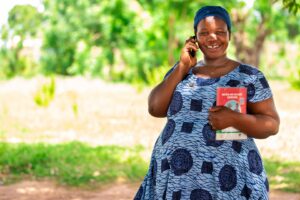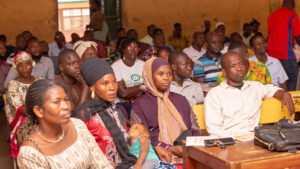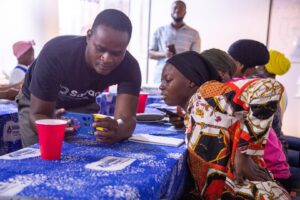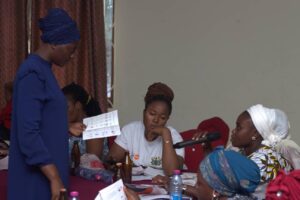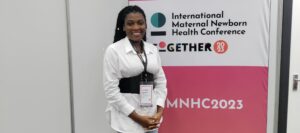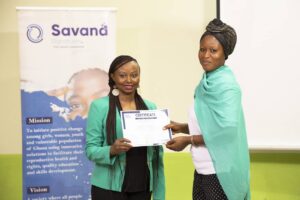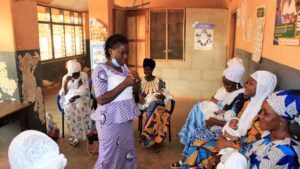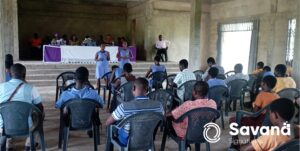Over the years, we have led the use of digital...
Read MoreCounter Statement: Removal of Taxes on Sanitary Pads in Ghana
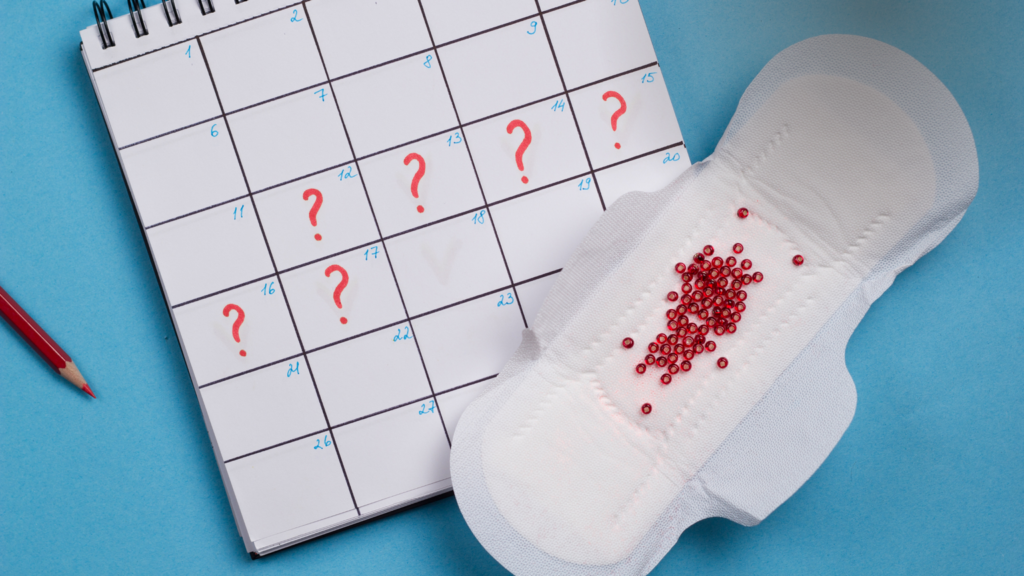
In a remarkable turn of events, Adisa Amadu, a peasant farmer from Yikpabongo in the Mamprugu Moagduri District, experienced a life-changing event that defied the odds. For the first time in her five pregnancies, she had the privilege of delivering her twins in a safe health facility under the vigilant care of a skilled midwife.
Reflecting on her past, Adisa recalls the distressing ordeal of her first four pregnancies, which were all attended to at home by traditional birth attendants. These trying times exposed her to a host of complications that left her scarred and haunted.
“Those pregnancies were a nightmare,” she recalled as she heaved a deep sigh of relief to signal that her ordeal has come to an end.
Savana Signatures acknowledges the statement issued by the Association of Ghana Industries (AGI) on June 24, which urges the government not to remove the widely criticised 20 per cent import tax on sanitary pads in Ghana. The AGI’s argument centres around the potential collapse of local businesses in the manufacturing of sanitary products and the resultant job losses. While we understand the concerns raised by the AGI, we believe that a stronger case can be made in favour of removing the import tax on sanitary pads.
The affordability of sanitary pads is a critical issue that significantly affects the health and hygiene of young women. Particularly for girls and women in rural areas of Ghana, financial constraints make it challenging for them to afford sanitary pads, leading to unhygienic practices and potential health risks. By eliminating taxes on imported sanitary pads, their prices can be substantially reduced, ensuring greater accessibility and affordability for a larger portion of the population. This, in turn, will contribute to the overall well-being of young women and promote a healthier society.
It is thus unfortunate that the AGI’s statement seems to embolden the government to maintain the tax on sanitary pads. As an organization dedicated to championing reproductive health issues, we find this stance by the AGI contrary to the interests of women and young girls in Ghana who have long suffered financially from these taxes.
While we support the AGI’s call for the government to remove taxes on the importation of raw materials for the local production of sanitary pads, we find their argument against the removal of taxes on imported sanitary products unconvincing. It is important to note that Ghana operates in a free trade market and should not appear to be hindering the import sector, as the AGI suggests. It is also crucial to recognise the role of competition and consumer choice in a thriving economy like Ghana. Besides, trusting the production of sanitary pads solely to the local manufacturing sector, which the AGI acknowledges is already struggling, could be detrimental to the availability and affordability of these essential products.
The presence of imported sanitary pads not only offer a wider range of options for consumers, but it also drives innovation and improve the quality of locally manufactured products. Rather than protecting a few local manufacturers at the expense of consumer welfare, it is important to encourage healthy competition and provide consumers with diverse choices. This, we believe, will ultimately lead to better products and increased customer satisfaction.
We believe that the government can strike a balance by removing taxes on imported sanitary products while simultaneously incentivising local manufacturers. This would ensure competitiveness in the market and help lower the cost of sanitary products for women, especially those in the most remote areas of Ghana. It is crucial to prioritize the wellbeing of women and girls by ensuring their access to affordable and high-quality sanitary products, regardless of whether they are produced locally or imported.
However, a welcome change was brought about by the introduction of the Community Engagement for Health and Welbeing (CE4HW) approach, made possible through the USAID/ ASBC Activity.
Related Stories
Savana Signatures Re-Launches Exchange Prog. Between Ghana and the Netherlands
Savana Signatures has announced the revival of its educational exchange...
Read MoreFemale artisans empowered with digital tools to boost businesses
Referred to as Digital Champions, the beneficiaries who are leaders...
Read MoreEmpowering Healthcare Providers to Enhance Family Planning in Northern Ghana
We have empowered healthcare professionals to provide family planning services...
Read MoreEmpowering Adolescent Mothers to Safeguard their Future
Seeking healthcare and support, Owusua visited a local health facility,...
Read MoreOne-year postpartum care trial shows positive maternal health outcomes
One-year postpartum care trial shows positive maternal health outcomes Findings...
Read MoreRisking A Life To Bring A Life: The postpartum situation in Ghana
Risking A Life To Bring A Life: The postpartum situation...
Read MoreSavana Signatures educates PWDs on GBV, HIV/AIDs
PWDs were introduced to the AgooSHE+ Helpline whey they can...
Read More
